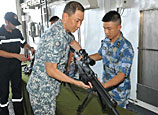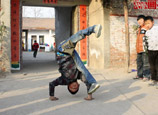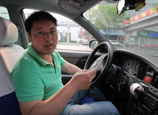
If this historic global shift is recognized and reflected by international institutions, it will make them more representative and reshape the world as we know it.
This argument is discharged by the report. “China with the world’s second largest economy and the biggest foreign exchange reserves, has but a 3.3 per cent share in the World Bank, less than France’s 4.3 percent.
“India, which will soon surpass China as the world’s most populous country, does not have a permanent seat on the UN Security Council. And Africa with a billion people in 54 sovereign nations, is under-represented in almost all international institutions.”
The report also points out that there are alternatives to the Washington Consensus – policy prescriptions that adhered to a market-based approach – as a way to bring about effective human development.
Turkey, Brazil, Indonesia, China, and Bangladesh among others have made impressive gains in human development by conceiving innovative social policies tailored to fit their peoples.
Cash transfer programmes in Mexico, Brazil and India have helped narrow income gaps and improve health and education in poor communities.
While the North can gain much from these diverse approaches, the report acknowledges that human development is a symbiotic process. That while the North learns from the South, the South too has much to gain from the knowledge and expertise of the North.
If global institutions become more representative they could facilitate a better and faster exchange of ideas, innovations and solutions.
Centuries ago adventurers, explorers and nations came seeking the South, to countries such as Brazil, India and China. From Marco Polo to Alexander the Great, from the Spanish, to the British to the French and the Portuguese, they came drawn by gold, spices, and silk, as well as by the mystique of these nations.
Now as time comes full circle and countries beat a new path to the rising South it may serve the world well if trading partners are also better political partners.
Ajay Chibber is UN Assistant Secretary-General, UNDP Assistant Administrator, and Director of the UNDP's Regional Bureau for Asia and the Pacific



















![]()
